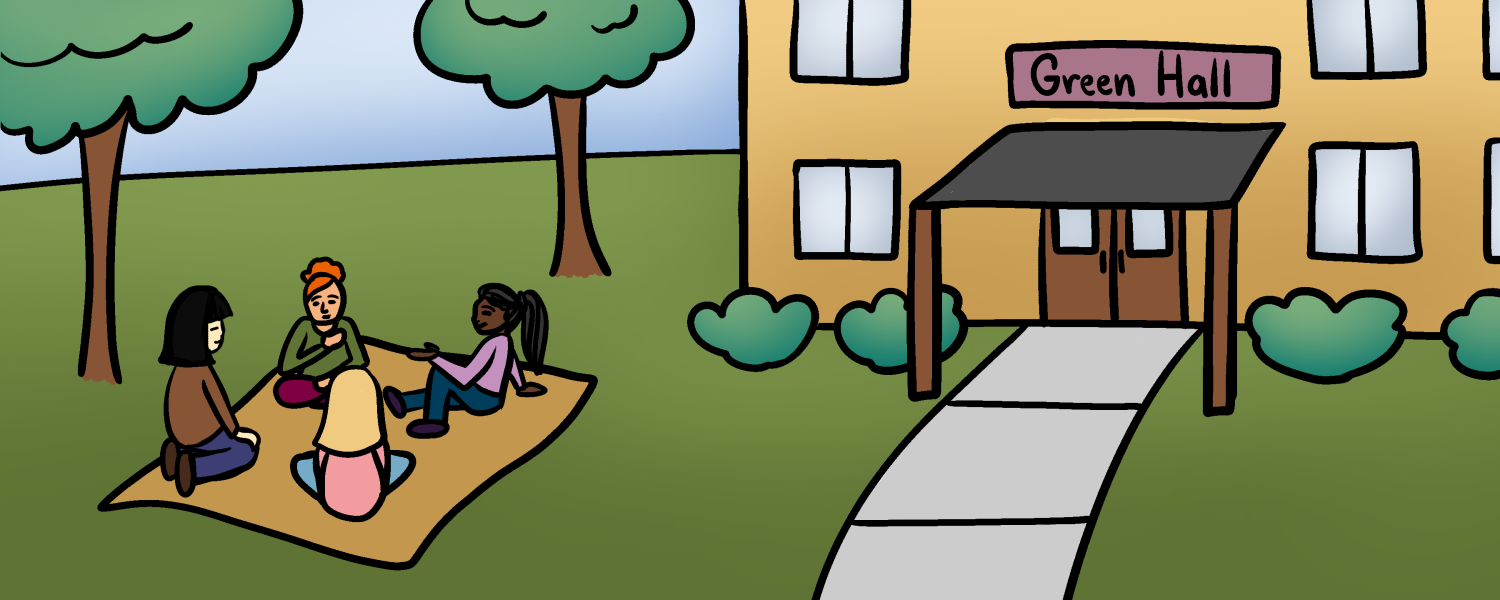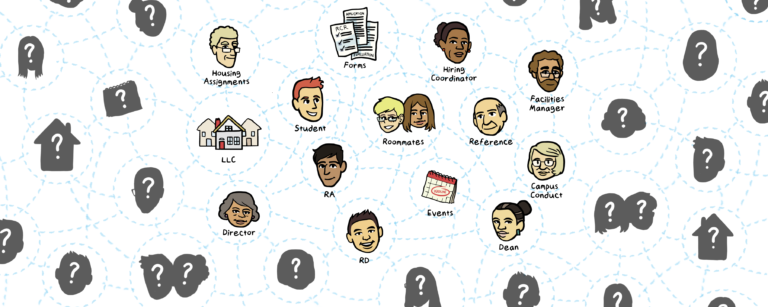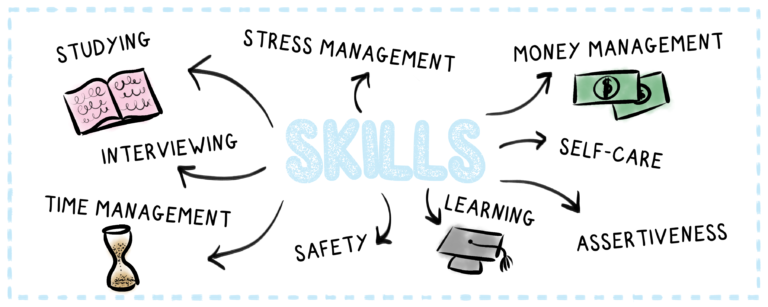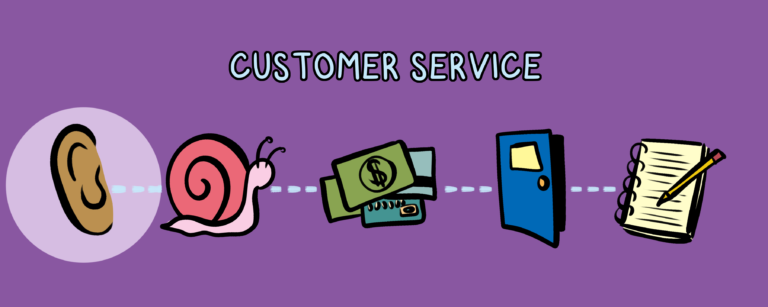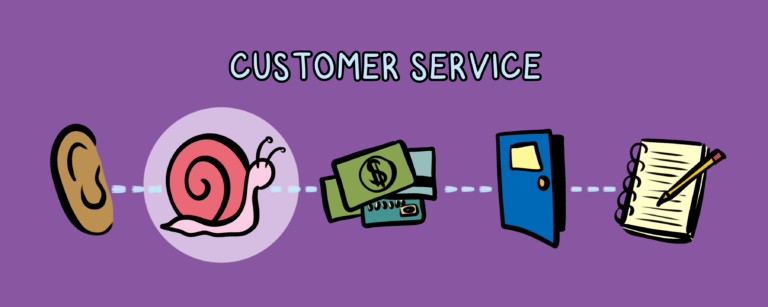 This post was written for Community Connections by Tiffany Mintah, Associate Director Strategic Initiatives at the University of British Columbia.
This post was written for Community Connections by Tiffany Mintah, Associate Director Strategic Initiatives at the University of British Columbia.
The incidents of police brutality and racialized violence that took place in the United States in recent weeks have catalyzed a much needed societal awakening around issues of systemic racism. There is global attention to the Black Lives Matter movement and a call for individuals and organizations to take active steps to be anti-racist. A recent large scale research study on race and equity on university and college campuses identified the same societal patterns of power, privilege, and racial inequity within our institutions. How then can we take action to dismantle and change systems that hurt racialized people?
Residence halls have a direct and significant impact on the student experience. Consequently, as residence administrators, we play an integral role in effecting change on issues of race, power, and privilege in higher education. We have a responsibility to build and model respectful and equitable racially diverse communities. My MA research explored engagement with race and privilege in higher education and surfaced four specific aspects of our work in student residences that present the most opportunity for sustainable change on issues of racial inequity on our campuses:
- How we approach staff hiring.
- How we navigate race/culture-based roommate and neighbour conflicts.
- How we support staff, students, and colleagues who experience negative racial interactions.
- How we facilitate equity, diversity, and inclusion learning experiences in staff and/or student orientation programs.
Yet, three realities alive on campuses today limit our ability to act meaningfully. First, the topic of race/racism is often superficially engaged with, and sometimes avoided altogether. Second, very few institutions gather meaningful data about the lived experiences of their racialized students, staff, and faculty. Third, experiences of racism are often recorded as isolated anecdotes or incidents, with little to no formal structures to investigate if/how these experiences permeate the culture of the institution. How can we disrupt the status quo?
Four Actions to Begin to Make Change
Here are four actions grounded in my research that leaders, in student residence and beyond, can take to begin to make a change.
- Engage racialized members of our communities to gather data and document stories to understand their lived realities. Ask questions about the impact of existing policies, strategic frameworks, and programs, and implement recommendations for change.
- Be explicit about our commitment to equity and anti-racism, and establish accountability structures and mechanisms to tangibly assess this commitment on an ongoing and regular basis. For example, embed equity competencies in hiring and performance matrices to signal an expectation that staff actively develop their knowledge, understanding and practice of racial equity.
- Integrate content about racism, power, privilege, and oppression into Residence Curriculum.
- Engage in transformative learning experiences that enhance lived understandings of racism, power, privilege, and oppression for staff, students, and faculty.
We all have a role to play to address the inequity facing racialized staff and students. What will you do today to make a difference?
**This blog post is adapted from:
Mintah, T. & Heykoop, C. (2020, June 8) The Time is Now: Effecting Change on Issues of Race, Power, and Privilege in Canadian Higher Education [Blog Post]. Retrieved from https://sls.royalroads.ca/blog/time-now-effecting-change-issues-race-power-and-privilege-canadian-higher-education
Tiffany Mintah Bio
Tiffany is a Black Canadian woman. Her MA research focused on engagement with race and privilege on university campuses in Canada. Tiffany works as Associate Director Strategic Initiatives with Student Housing at the University of British Columbia. She is a new mother to a 7-month old son.
References
Henry, F., Enakshi, D., James, C., Kobayashi, A., Li, P. S., Ramos, H., & Smith, M. (2017). The equity myth: Racialization and Indigeneity at Canadian universities. Vancouver: UBC Press.
Mintah, T. (2019). Residence Life Managers’ Engagement with Race and Privilege (Unpublished master’s thesis). Royal Roads University, Victoria, British Columbia, Canada.
